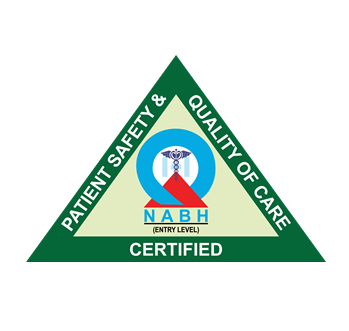
What to Expect During Brain Cancer Treatment – From Diagnosis to Recovery
The life of an entire family can be transformed when one receives a brain cancer diagnosis. It evokes a sense of dread and uncertainty. During this physically and mentally taxing period, it can provide comfort to know what lies ahead. Brain cancer treatment has several phases. Each phase has its own hurdles and distinct objectives that must be accomplished. Understanding the entire process aids in better planning and gathering the right information to make educated decisions.
Understanding Brain Cancer
The abnormal and unregulated growth of abnormal cells in the brain leads to brain cancer. These tumors can be primary (originating in the brain) or secondary (metastasising from other parts of the body). Some primary tumors can be benign and not spread. However, a majority are malignant and may affect other parts of the body or the nervous system.
Treatment options and their severity differ due to:
- The type and grade of the tumor
- Its size and location
- Its growth speed
- The patient’s age and overall health
To Monitor
Symptoms of cancer in the brain may differ depending on the specific brain region that is affected. It is critical not to overlook persistent and unusual symptoms since many early signs tend to be ignored because they resemble many other conditions.
Some of the most common symptoms:
- Severe and persistent headaches, particularly in the early morning
- Blurred and double vision
- Seizures, even without a history of epilepsy
- Problems with balance or coordination
- Change in temperament or mood
- Weakness or numbness of limbs
- Difficulty with memory, confusion, or understanding language
Even though they may not point directly to brain cancer, a medical evaluation is necessary in the event that they worsen or persist.
Obtaining a Diagnosis
If brain cancer is suspected, multiple tests will be recommended in order to confirm the diagnosis and evaluate the nature of the tumor.
- Neurological Examination: Evaluation of the patient’s brain function, reflexes, and coordination.
- MRI or CT Scan: These scans create detailed images of the brain to identify the location of the tumor.
- Biopsy: A sample of the tumor is taken to assess if it’s cancerous and, if so, which type it is.
- Molecular Testing: Aids in tailoring the tumor’s treatment to the patient.
A timely and precise diagnosis empowers the doctor to design a tailored treatment strategy.
Steps in Treating Brain Cancer
- Treatment Planning
A multidisciplinary team that includes a neurosurgeon, oncologist, radiologist, and rehabilitation physician will be involved in formulating the treatment plan after the diagnosis. It will be influenced by the tumor’s size, grade, location, and its metastatic spread, if any.
The patient and their family will be part of the planning process. The physician will be explaining the various options, including their correlative side effects and probable outcomes.
- Treatment (Surgery if Necessary)
Surgery is the initial course of action for a large number of patients. The goal is to surgically excise the tumor as completely as possible. In some cases, the tumor can be completely excised, while in others, it can only be partially excised to alleviate pressure and other symptoms.
Modern hospitals are able to use the following procedures:
- Intraoperative MRI – aids the surgeon during the operation
- Microsurgery – aids the surgeon during delicate operations
- Neuronavigation – aids in identifying and removing tumors with the least possible injury to normal brain tissues, much like a GPS aids in navigation.
At facilities such as East Point Hospital, the use of such technologies enhances safety and recovery during brain cancer operations.
- Radiation Therapy
Radiation Therapy may be administered post-operatively to eliminate cancer cells that are still active. This may also be executed as a single treatment if the surgery is too risky. Radiation can be administered externally, as with external beam radiotherapy, or internally, as with brachytherapy.
Advanced forms of treatment allow for precision, such as Stereotactic Radiosurgery (SRS), which delivers high doses with great accuracy while reducing potential damage to surrounding tissues.
- Chemotherapy
Chemotherapy is the use of drugs to destroy cancer cells or cease their growth. Medication may be administered orally or via a drip. Chemotherapy is often associated with fatigue, nausea, and in some cases, hair loss. Supportive therapies are available to assist during treatment.
Targeted therapies are also available, using specific drugs that act on particular changes in the genetics of the tumor.
- Recovery and Rehabilitation
Healing from an illness or an injury, especially from a surgical procedure, usually goes hand-in-hand with regaining lost physical and mental abilities. Depending upon the injury, patients may require assistance with the following:
- Dialect
- Coordination, movement and balance
- Memorial or attention skills
- Post emotional and psychological assistance
A multidisciplinary approach with physiotherapists, occupational therapists, psychiatrists, and speech therapists is essential. Rehabilitation can extend for weeks or even months post the primary treatment.
- Ongoing Scan and Neurological Exam
In addition to the treatment, patients require ongoing scans, and an area-specific neurological exam. This helps the team in tracking the patient’s recovery and checking for any early signs of recurrence. This stage also entails assistive therapeutic interventions like pain, mental health, and nutritional therapy.
Why Seek Treatment for Brain Cancer in Bangalore?
In addition to the expertise in the field, the city is renowned for its state-of-the-art technologies and nurturing environment. This has made Bangalore an emerging hub for neuro-oncology owing to:
- Qualified neurosurgeons and oncologists
- Diagnostic and surgical facilities up-to-date
- Comprehensive healthcare in specialised institutions like East Point Hospital
- Economical packages for domestic and international patients
In addition to treatment, patients in Bangalore receive additional skilled nursing and rehabilitation support, enhancing the overall recovery experience.
FAQs
Q1. What is the treatment approach for the movement disorders caused by brain tumors?
Advanced treatment options can be available for some brain tumors that impact the motor functions by causing symptoms such as tremors, stiffness, or coordination issues. Medications, Deep Brain Stimulation (DBS) and Stereotactic Radiosurgery (SRS) can alleviate some of the symptoms. Additionally, neuro-rehabilitation is essential for movement restoration following surgical intervention.
Q2. Is there an application of brain cancer targeted treatment?
Yes. The application of targeted therapies is advocated in the treatment of glioblastoma and other high-grade tumors. These therapies are more focused and tend to target specific genetic alterations in the cancer cells. They are also proven to be less toxic than chemotherapy.
Q3. What is the expected return to daily activities for patients following brain cancer treatment?
There is variability in the response of patients. The time to return to work can be as short as a few weeks for some, while others can take months of rehabilitation. The care team is there to support the recovery and ensure that the recovery pathway is tailored for the specific needs of the individual, and is within reason for the expectations.
Receiving treatment for brain cancer is a multifaceted process of integrating clinical expertise, cutting-edge medical technology, and the provision of psychological and emotional care. Every step is critical, from precise diagnosis to continuing care. The difference is made from having a supportive team that collaborates with the patients and their families.
If you are thinking of having your brain cancer treated in Bangalore, you can check out East Point Hospital which is known for giving value to patients through its comprehensive…patients through its comprehensive… patients through its comprehensive precision, value, and care.

